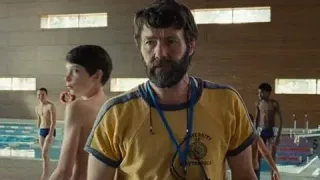January 19, 2021
Watch: Prada Fall/Winter 2021 Menswear Collection
Matthew Wexler READ TIME: 1 MIN.
Milan's fall/winter 2021 menswear shows have gone digital this week, catapulting creative directors like Prada's Miuccia Prada and Raf Simons into filmmakers as much as designers.
The designers took comfort to an entirely new level, reimagining onesies in luxe fabrics, deconstructing suiting elements, and embracing both textural elements and button details in outerwear.
Discovering Prada's triangle logo became a game of "Where's Waldo?" with the signature branding appearing on buttons, gloves and clothing accents.
"The moment of a creative renaissance is very far," said Prada, as reported by Business of Fashion. "We have a very important sense of responsibility for the moment."
"It's not right to be exuberant," Simons added. "The bodysuit represents the body, but other pieces are minimalized. We wanted a calmness in shape."
The 11-minute fashion show features music by one of Simons' favorite techno musicians, Plastikman, aka Ritchie Hawtin.
In addition to presenting the collection, the brand debuted a global digital conversation between Prada and Simons with students from a cross-section of cultures and countries, from China, Italy, the UK and beyond.






